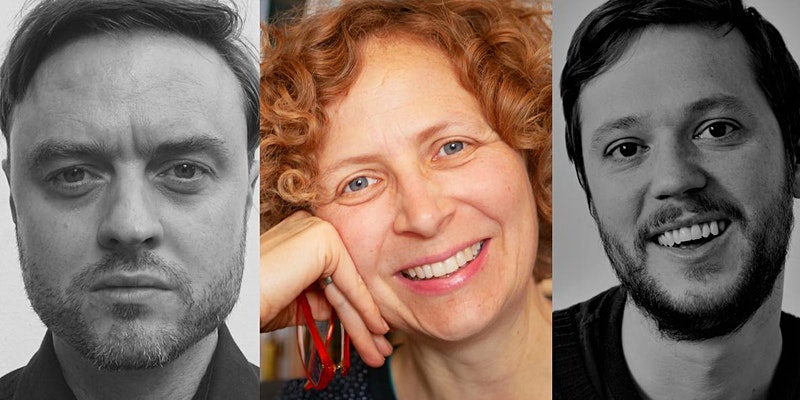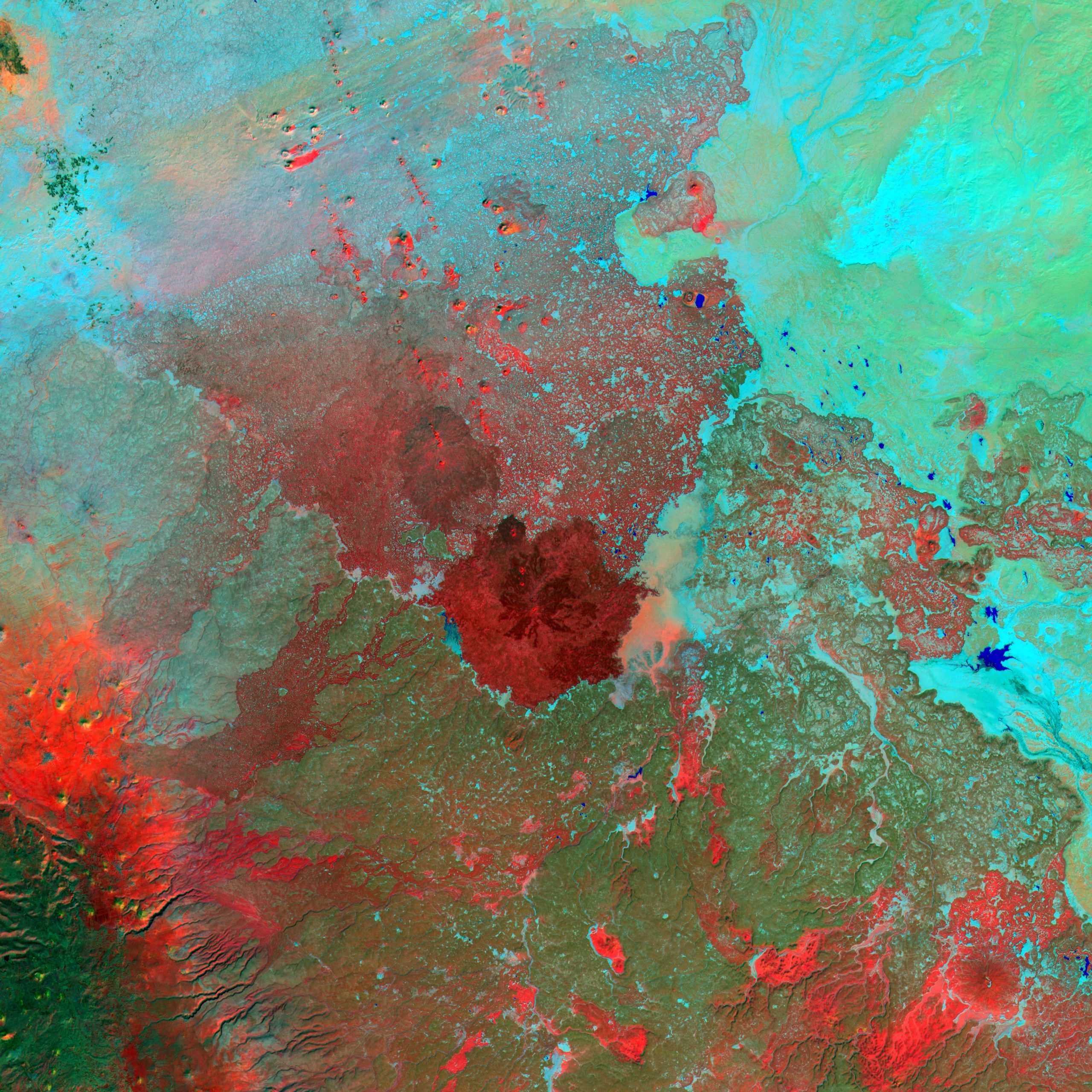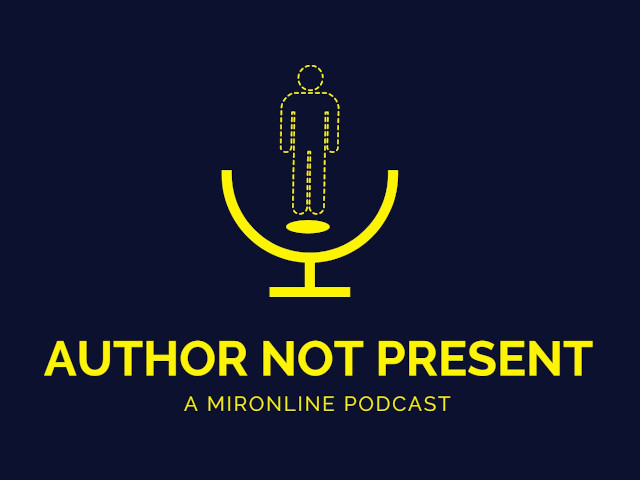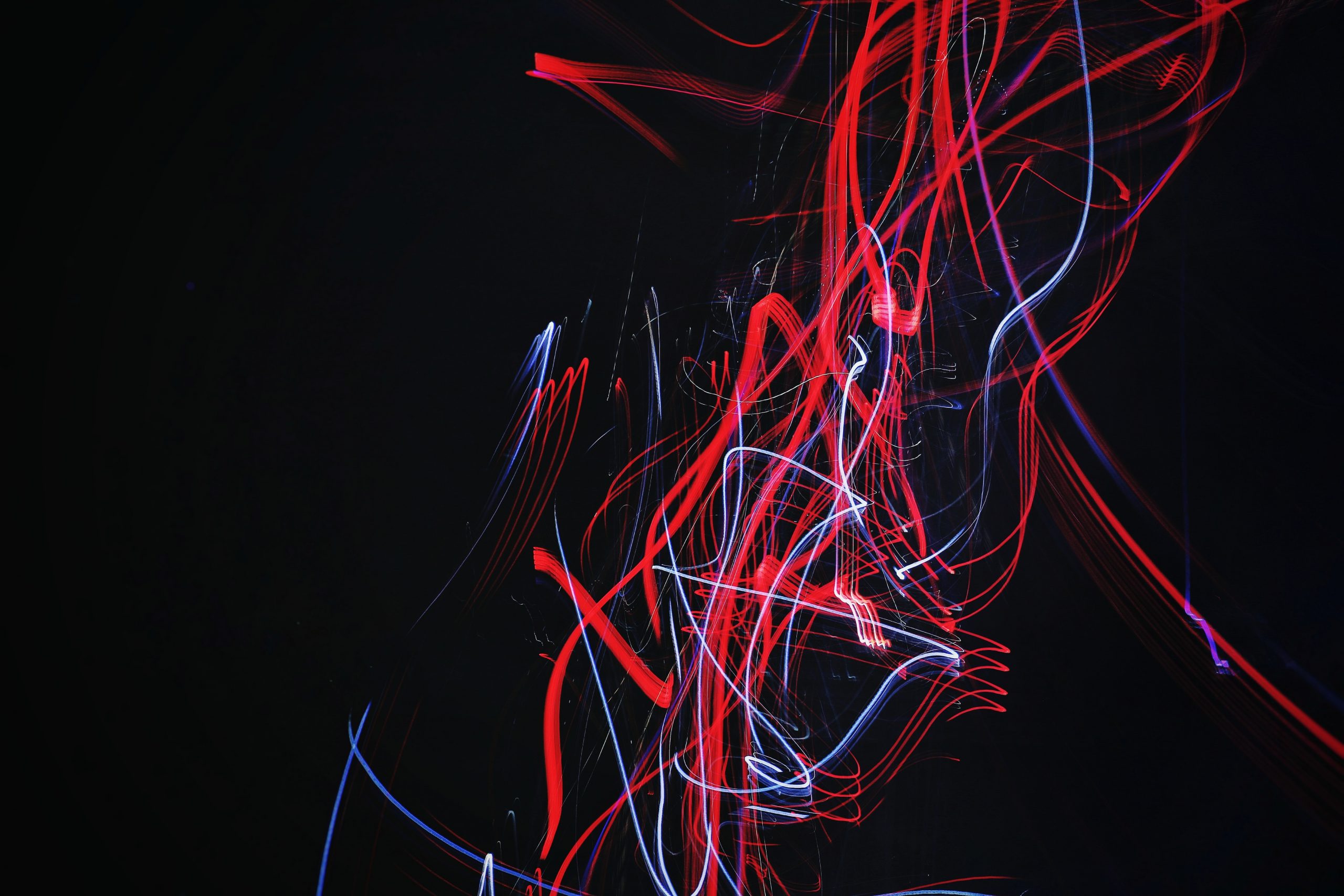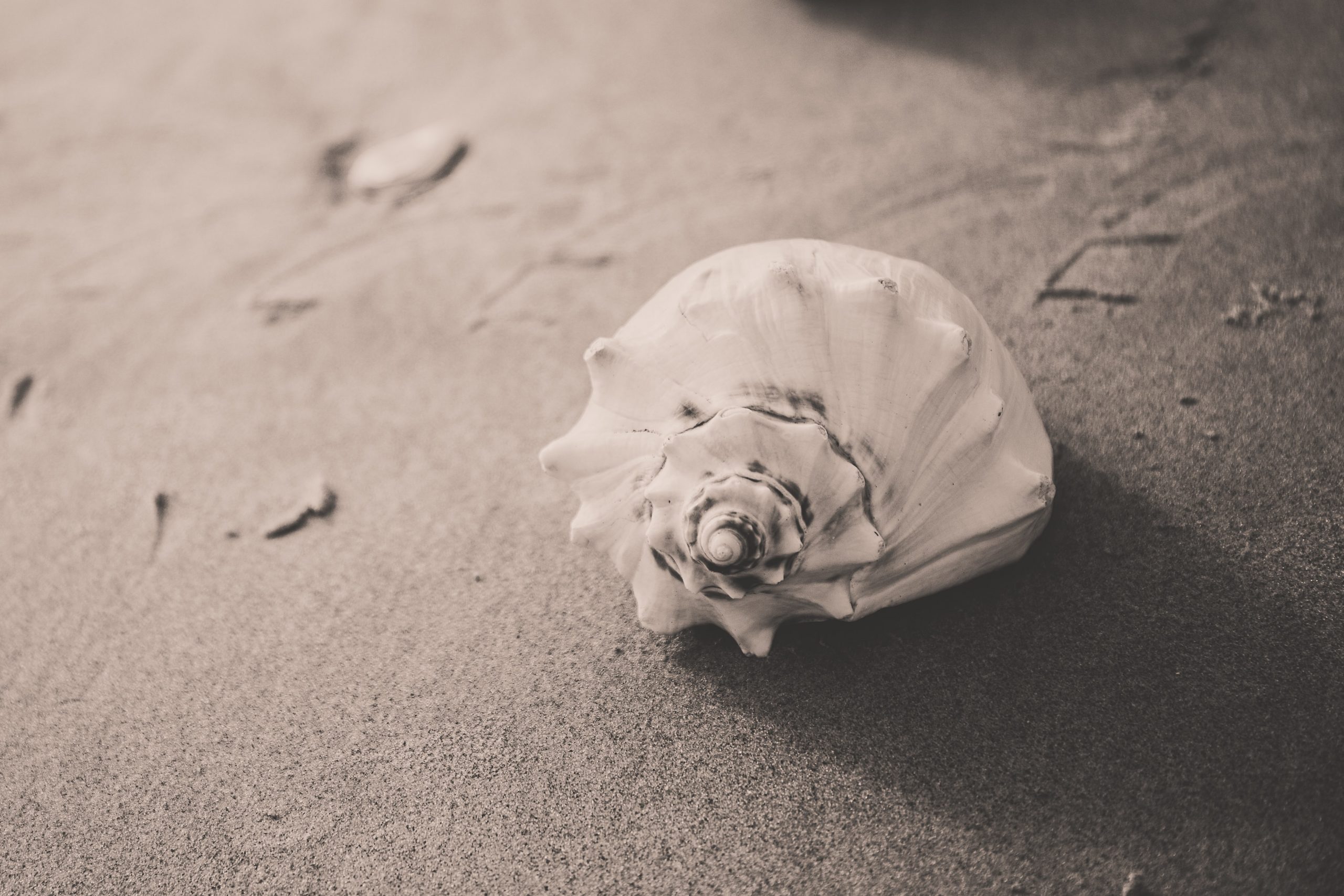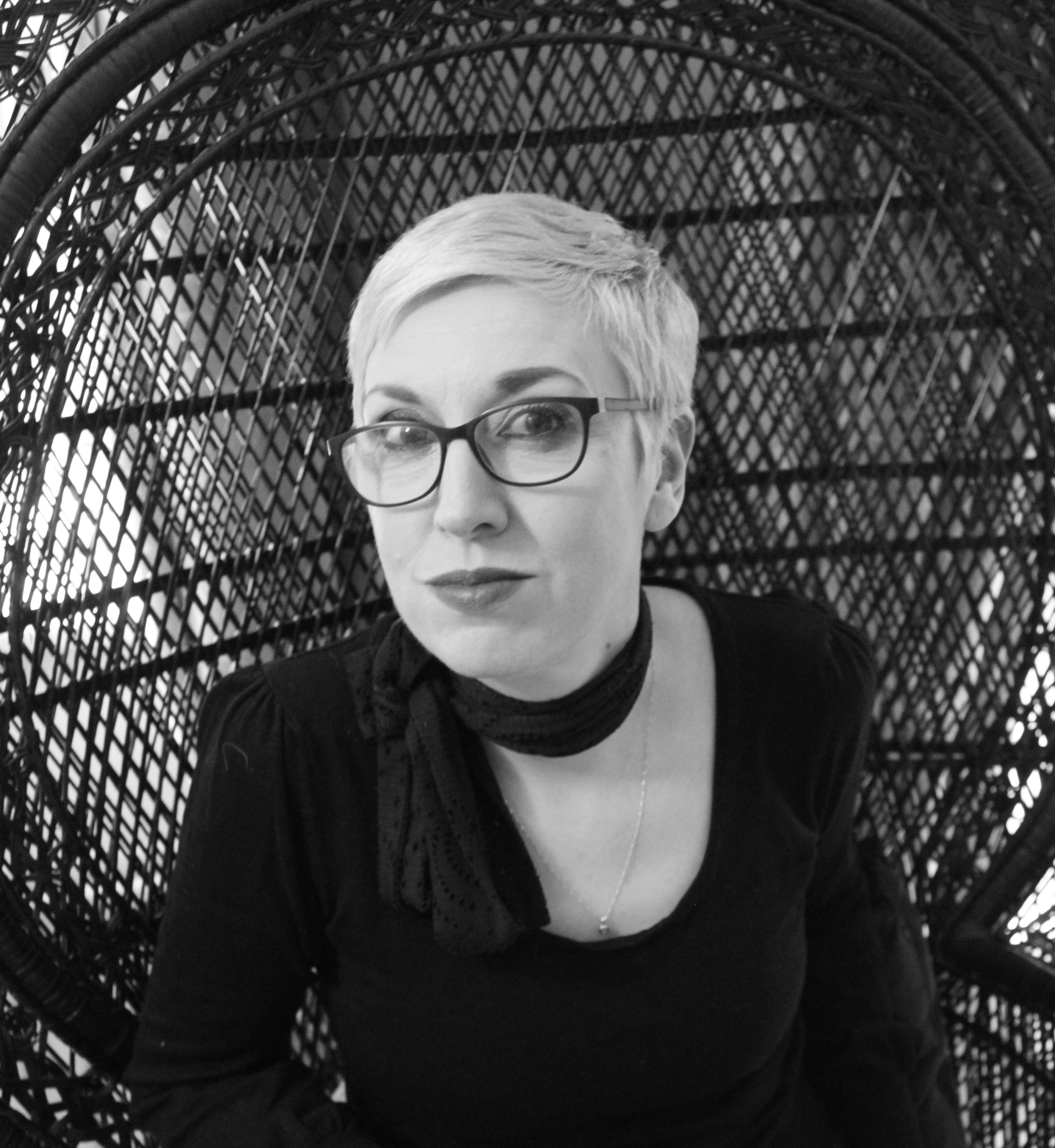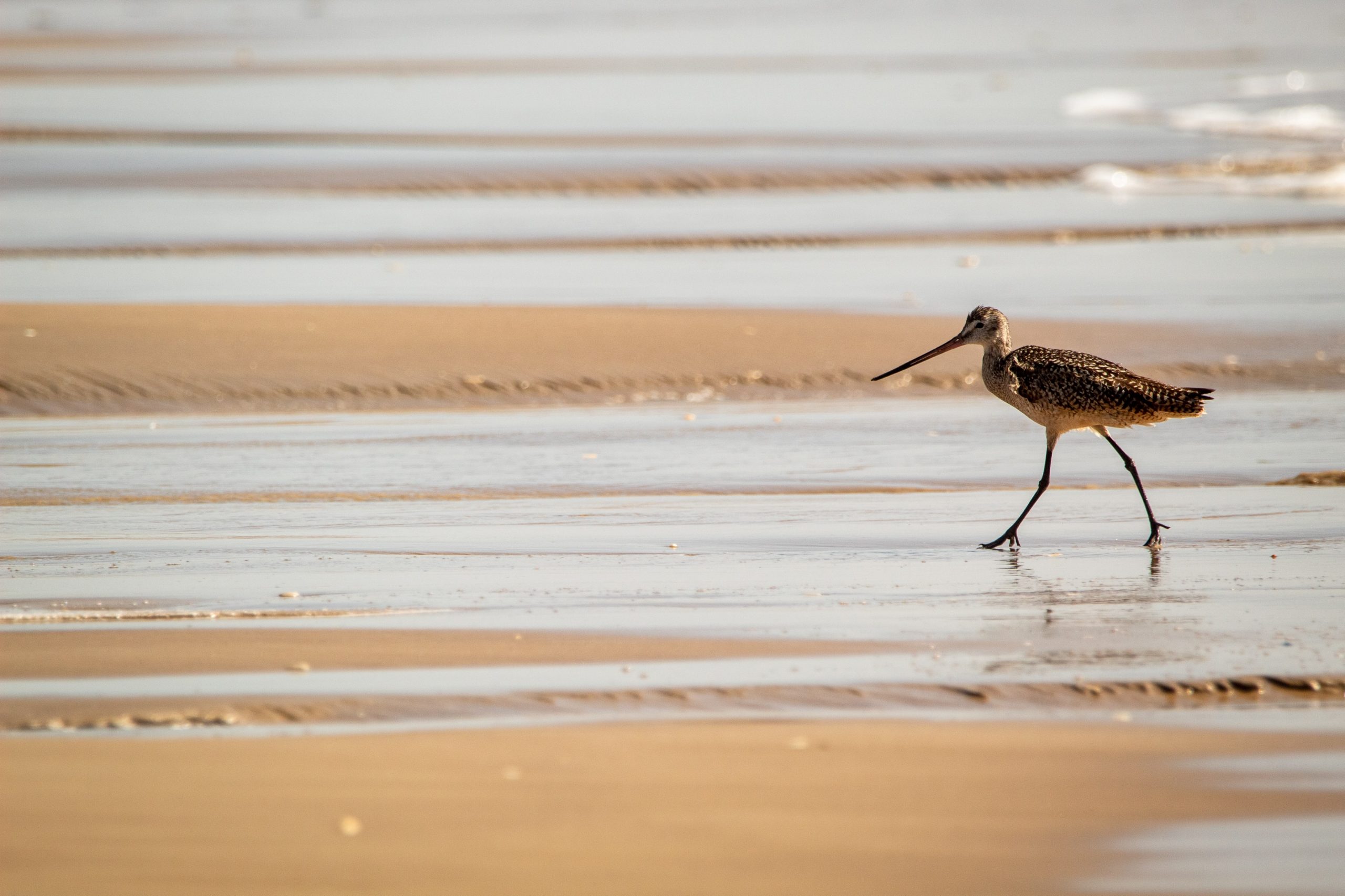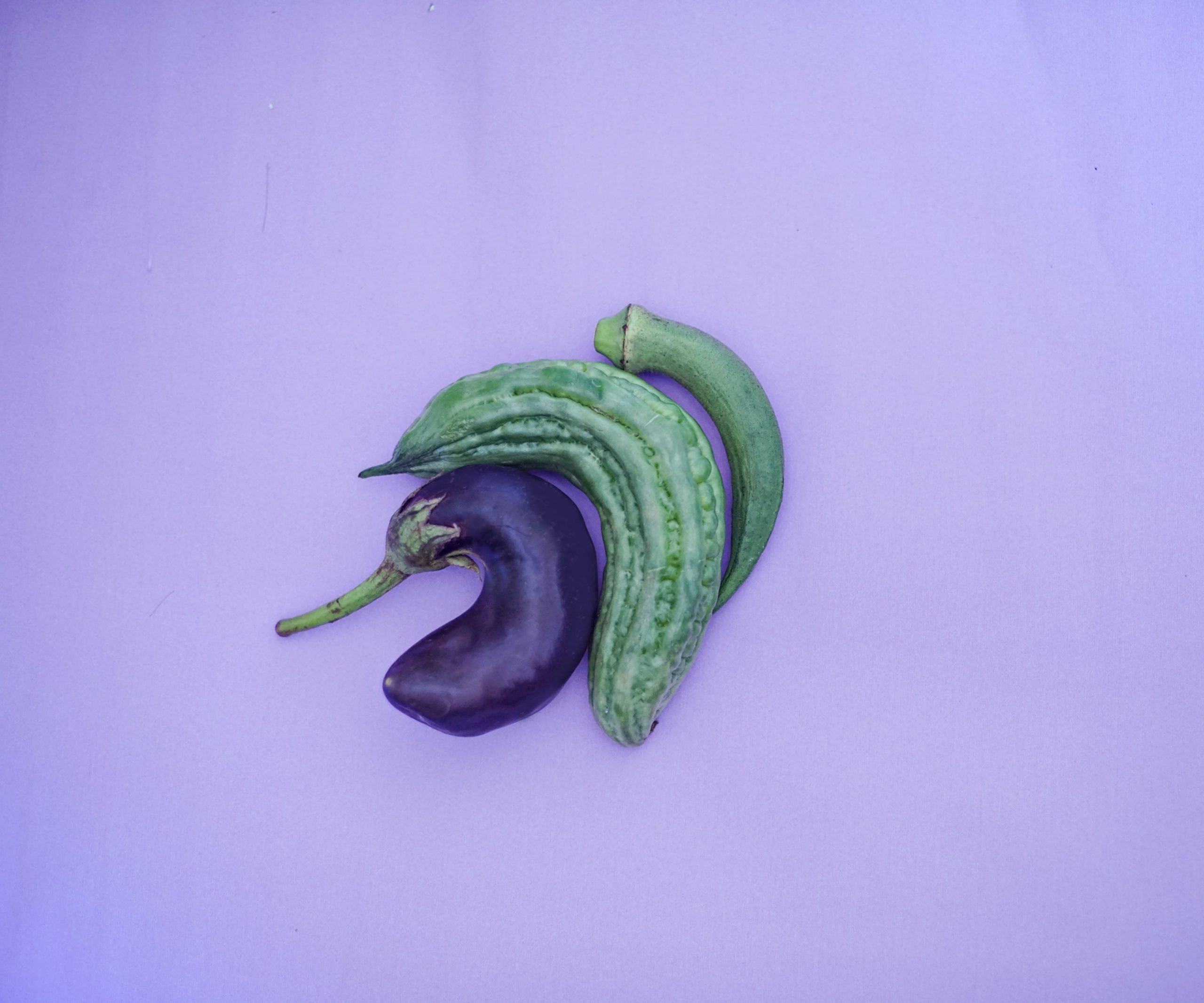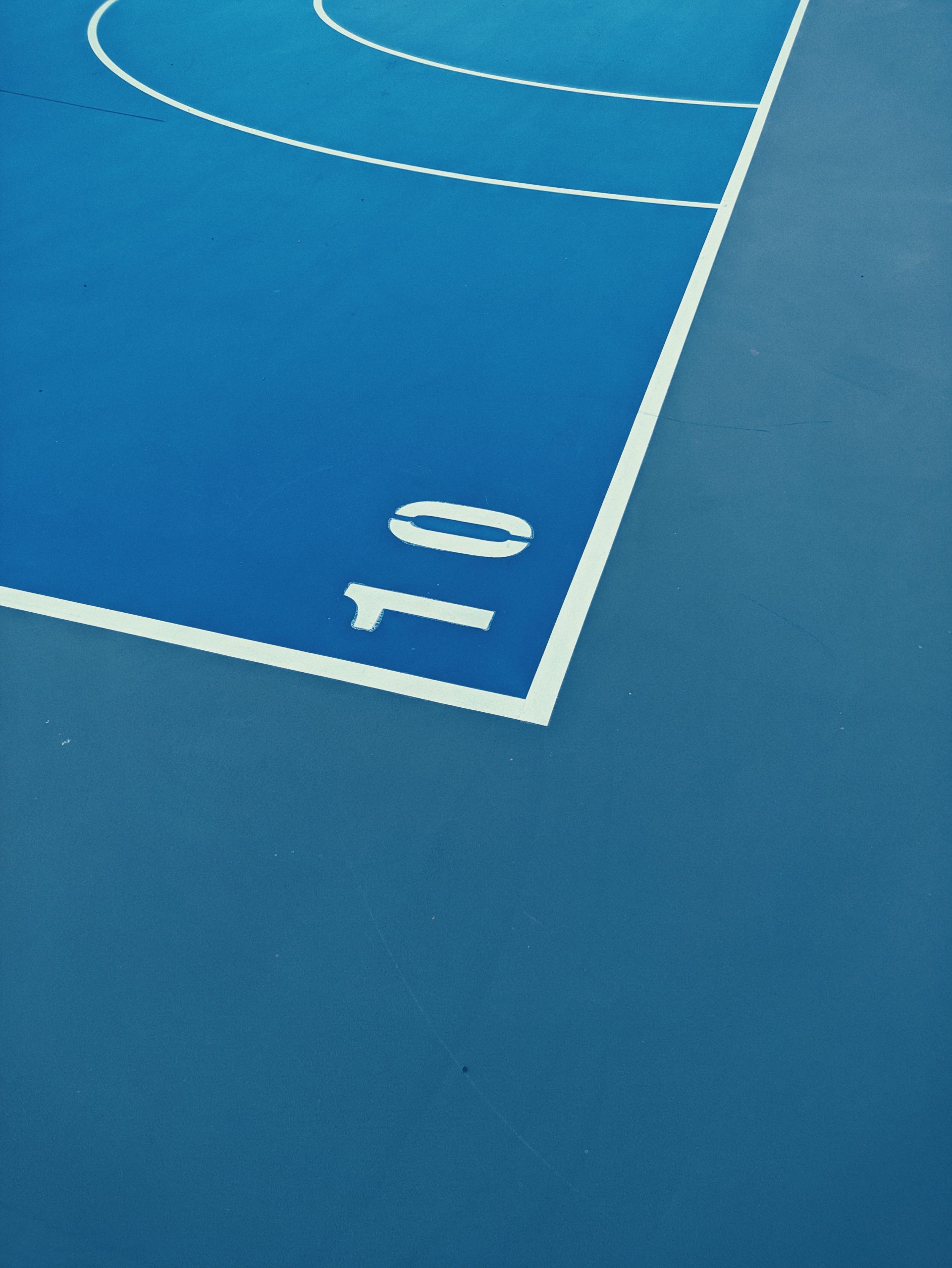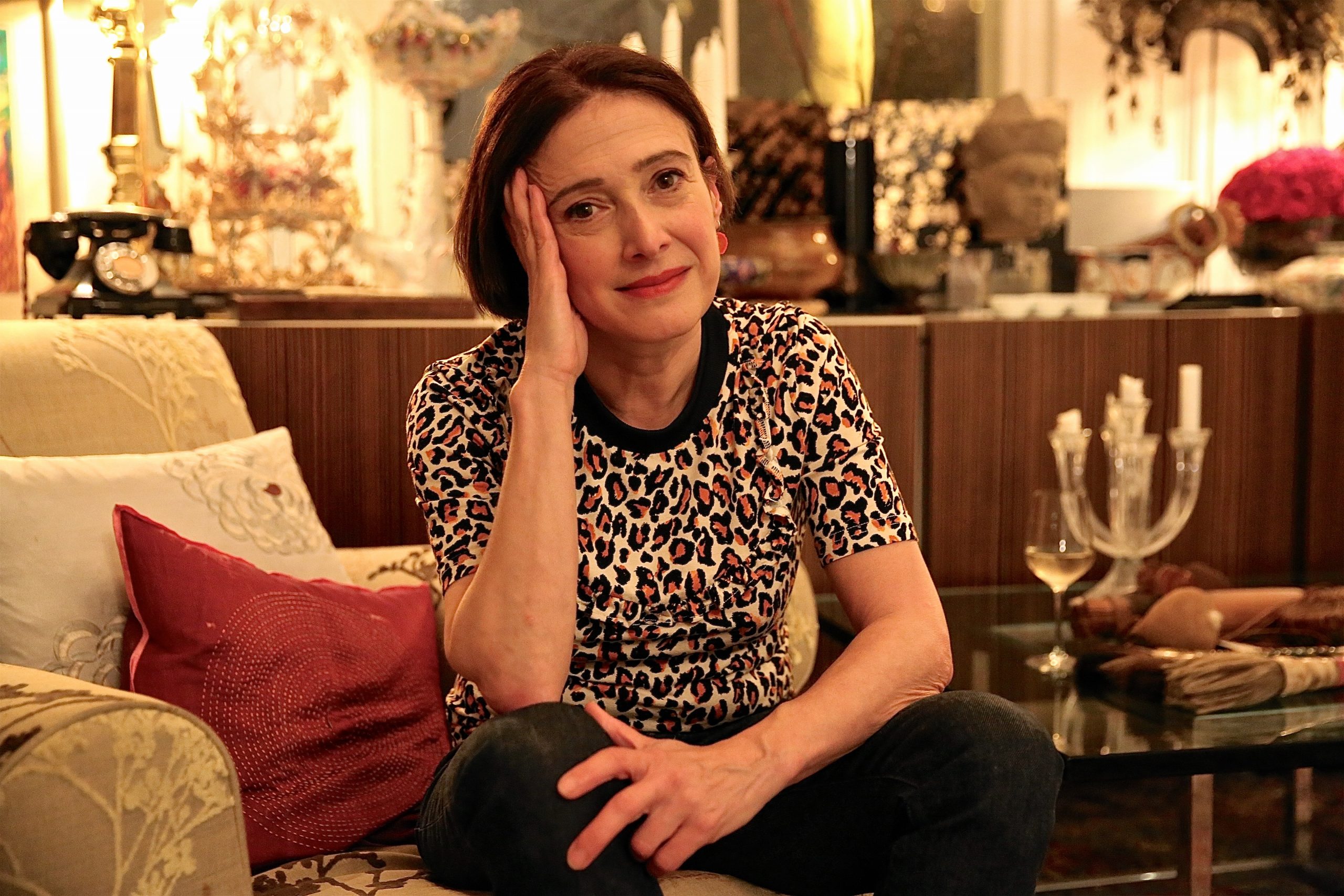My father left Damascus like a lover creeping from his mistress’ bed in the dark of night. He didn’t even look back towards her as she slept unawares. He left her, but she had her revenge, as she would haunt him throughout the years.
“I arrived in London amidst the smog of the 60s,” he would say.
“In the beginning, I found it very difficult that there was one day I remember just sitting on a curb in Bermondsey and crying.”
He was 18 years old.
“Why did you leave Baba?”
“The ambition of youth, plus your grandmother having died, there was nothing keeping me there. My waters had dried up as the Syrian saying goes.”
Baba watered my childhood with his reminisces that eventually flowered through the yearly vacations and trips to Syria. I gradually learnt to understand his love for Damascus. He would often tell me that once you drink from the springs of Barada, you are overcome by an eternal love for the place.
“Baba I’ve heard people say that about the Thames!”
“Rubbish…there is no water like that of Barada!”
***
“Ladies and gentlemen this is your pilot speaking. We have just been cleared to land at Beirut International Airport. We will be landing at 0030 hrs local time; the temperature is 10 degrees and the skies are clear—”
I look out of the window at the boisterous lights of Beirut breaking the boundaries of the Mediterranean Sea, trying not to spill over. The plane tilting sideways to give me a panoramic view of the Levant’s approaching majesty. 2017, and it has been 6 years since my last visit to Syria. No longer able to fly direct, you have to take a detour via Lebanon. I look at the empty adjacent seat that reminded me that I had gone against everyone in my determination to make this trip. My companion backing out last minute. My life also on detour, to where I don’t quite know.
At passport control, I fumble around for my documents, handing over my Syrian ID card.
“Do you have a visa to stay in Lebanon?”
I’m still rummaging.
“If not, you will need to be across the border within 24 hours or risk deportation.”
“Sorry, here it is.” I hand over my British passport.
His face contorts into a plastic smile.
“Welcome to Lebanon,” he says.
“Don’t worry I have a taxi waiting for me, I will be in Damascus in less than three hours.”
Asshole… under my breath.
Thud, stamp, passport.
I exit the airport into the thick of night and the gnawing January air. Solitary in my apprehension and wondering where my taxi driver is and all but eager to reach Syria safely. A car approaches and he rolls down the window.
“Bayan?”
“Yes, are you Abu Ahmad?”
“Yes!” He jumps out to help me with my luggage.
Grateful to get into the gaudy taxi, I look over at him, barely able to move his limbs from being so over-dressed.
“Are you cold, akhti?”
“No, no, I’m fine thank you.” I stifle a smirk. I can’t help but smile, remembering how averse Syrians are to the cold. The engine starts and I feel apprehension crushing my chest as we begin to snake our way towards the mountain ranges, through Zahle and eventually the border. I watch Lebanon disappear behind us and the cedar tree flag gradually flutter out of view as we drive along a no man’s land.
“Can you see? Not a light in sight! The war has drained the coffers,” he says.
He hasn’t drawn breath from the moment we left the airport. It’s been one monotonous small- talk-heavy exchange. I am trying to be polite, but all I can concentrate on is the desolation. I am watching the car curve along into a new unknown. The headlights seem useless barely making a dent upon the night. I strain my eyes in an attempt to see the terrain that I remember, to see the country that I love, to recognise some semblance of the past. Impenetrable.
This is not the Beirut-Damascus exchange…normally bustling with commuters. Cedars in the rear, jasmine on the approach. The closer we seem the heavier my heart begins to feel. My only fear on having made my way to Heathrow a few hours earlier, was that I want to remember Syria as it was. I don’t want my memories stolen along with the souls that I have lost. I want to retrace some footsteps as if walking backwards in the snow, savour them one last time I suppose. I don’t know, it all sounds like a bad idea now.
The taxi, a migraine in itself, the chandelier is jingling and really jarring on me. The worry beads swaying above the mirror at every bend in the road, not to mention the incessant intrusive questions. He means well, but I’m just tired.
“What brings you back?”
“How much do you earn?”
“How old are you?”
“Are you married?”
God! Will he not stop? I think. Next, he will want to know what contraception I’m on!
Ya Allah, please make him stop! Maybe if I tilt my head against the window and pretend to sleep, maybe then he will allow me a moment with my thoughts. He taps me on the shoulder. Lord!
We roll into the first checkpoint.
“Don’t say anything, let me do the talking, don’t say you have any foreign currency, just don’t say anything at all!”
“Ahlan Abu Ahmad!”
Huge soldier slaps him on the back.
“Look at you, looking well, this taxi driving must be a prosperous number for you?”
“Allah wakeel Abu Tarek, I barely make enough to feed my four children. This is my second job as you know.”
I watch him hand over packs of cigarettes and rolls of cash to the hyenas sitting around on cheap plastic chairs. I can see their AK47’s propped up and ready. One of them is tending to a coffee pot on a gas canister as he looks up and stares at me. I hold his gaze as I wonder how much money he has made from the desperation of people crossing this very border. How many free cigarettes has he lined his tarred lungs with? How many people has he detained and stopped metres short from freedom? Blood money.
Abu Ahmad breaks my thoughts.
Yala akhti, come out we need to go into customs.”
Empty. Gone is the chaos of people trying to obtain their stamps. There are two men sat at the desk beneath the mandatory portrait of Bashar and his beady blue eyes that seem to follow me around. I hand over my passport and ID card. He looks up at me with contempt at having seen the foreign passport, stamping it and all but throwing it back. One violent entry stamp and I am given the permission to continue down towards the Damascus basin. We speed off.
The view as we reach the monument of the Unknown Soldier, the lights…a raven mane studded with diamonds.
“At least this is the same,” I say.
Tears begin to pool in the corners of my eyes.
“You are lucky the electricity is back on, they cut it every three hours. Where are you staying?”
“Muhajarrin, district 10.”
“That’s very high up, akhti! Only thing being is that to get into Muhajarrin, checkpoints, and more checkpoints. You are literally perched right up Bashar’s arse, so they will check every in and out!”
“Funny how he chose to remain in a house amidst the civilian population!” I retort.
Electricity suddenly cuts. Black. A veil envelopes Damascus obscuring her gemmed hair.
Checkpoint.
We stop and I am blinded by the torchlight that is being thrust in my face.
“Where are you going?”
“Muhajarrin, district 10, I am visiting my cousins, my name is Bayan Al Turki, this is my ID.”
…and all I want to do is get to my cousins shitty flat.
“What happened to our country?” I whisper to Abu Ahmad.
The soldier takes out what looks like an improvised bomb detector and shoves it under the car while the other illuminates his view. Cursively they shine the light throughout the back of the taxi, glaring at us before beckoning us through.
“Stop the car please I need to vomit!”
I heave my nerves out onto the sidewalk. He passes me a bottle of water, and I try to wash the fear from my face. Nothing could have prepared me for this.
“Use the water sparingly,” he says.
I’m not quite sure why he is saying this.
The streets are quiet, empty, bar the filthy street cat that looks up at me, as I drink out of the Bukein water bottle. I pour some out as it dashes towards me and starts lapping it up.
“Even the cats are thirsty,” he says.
Still, I don’t understand.
The taxi struggles up the mountainside, screeches to a halt and I am jostling to grab my belongings as there is a soldier telling us to move on. I am barely on the pavement and I watch the car disappear like water down a plug hole. I fill my lungs with relief, I am here in one piece at least. My cousins – abandoned by time – in a decaying flat they inherited from a dilapidated great aunt. It clings to Mount Qasyun like a baby to its mother’s breast. I haul my suitcase up the staircase and knock on the door and I’m almost immediately engulfed by hungry limbs. Oh god, the familiarity of their smell, the incense and jasmine that transports me to the stalls outside the Umayyad mosque. It smells like childhood memories. Layers of moth-eaten cardigans, scarves and shawls, and Hana’s thick-rimmed glasses, she is kissing me and pulling at my luggage entreating me to sit, while offering me a blanket. The only source of heat coming from an old diesel stove in the back room. I’m sure to die of carbon monoxide poisoning before any bullet can get at me. She insists on swaddling me. I examine their faces through the dim candlelight, they have aged, seem shorter and somewhat concave. Their complexions sallow as they examine me intently, hurling questions right and left. Their faces…war-beaten.
“How is khalo and mart khalo?” They ask in unison like Siamese twins.
“How are your children? Mashallah, we see their pictures on your mother’s Facebook! So beautiful!”
I look around, taking in the old family photos. The sofa that my aunt would always occupy all the way up until death claimed her in her sleep. I imagine her having dissolved into the cushions. They are rushing around to make me some tea, yet I am numb from my journey, everything seems familiar but unfamiliar. I am trying to process. It’s clear that they are in full blown ‘war mode’, yet are treating my impromptu visit no different than any other. Suddenly the electricity switches back on, they dash over to make sure the phones are in the chargers, and to recharge the battery-powered lamp. The lights, without mercy, reveal the decay of the flat and its inhabitants. I always knew deep down the journey back was going to be hard, but the more I see, the more I wish that the lights would stay out, that the sun not rise.
By morning I have succumbed to the several layers to keep out the cold. Lama is snoring gently as I wake to the call to prayer. I tiptoe past to get to the bathroom. Twisting the tap, the pipes groan in agony from behind the tiles giving forth little more than a spurt. I twist again, both ways, nothing but the remnants of a rusty tanker. Hana pops her head round the corner.
“Habibti we should have warned you…there is no water, the rebels cut off the supply from Ain al-Fija. What you used last night was our last of the tanker.”
“So, what do you do?”
She hands me a massive Jerry can.
“Get dressed,” she says.
With two Jerry cans in tow, I come out into the piercing blue momentary bliss. The view, there it is, the birds compassing above and beneath the morning canopy. Then I see the people coming from all avenues, with their buckets, containers, wheelbarrows and buggies. The old, the young, all heading in one direction. I join the pilgrimage as I look around me at the stories etched on their faces.
I ask a woman next to me.
“Where are we going exactly?”
“Just to the next street, there are three taps, we will have to queue for a while.”
A camera crew appears from nowhere.
“Why are they filming?” I ask her.
It’s the Syrian National TV.
“Yes, but what are they doing?”
I spoke too soon as they stick the camera in my face.
“Tell us miss, what do you think of the water facilities here that thanks to our benevolent president, has been opened up to counteract the rebel’s act of aggression in cutting off water supplies to the city?”
My Camden girl element heats up…
“Are you being serious? Is that…is that a serious question? Can you not see for yourselves? I’ll tell you what I think of the fucking taps!”
Camera cuts and they hurry off.
“You should be careful miss, you can’t speak like that. They are all Mukhabarat. Get your water and go home, I can see that you have come from outside, please be careful.” Fear in her eyes.
Eventually, I hurl the Jerry cans back up, as I watch a small child not much taller than her can drag hers. Damascus has been somewhat spared the worst of the conflict, but seeing this is just too much to take in.
In the bathroom I crouch my nakedness over a bucket, my body angry with cold. Jealously safeguarding every drop, making sure that they fall meticulously back in so that I can use them over and over and over, as Lama brings me in a boiled saucepan full and pours it in to warm me up. Today I cherish every atom of H2O. I wash my face, my body, my hair, brush my teeth, and finally flush the toilet with my one bucket of well-used water.
I needed to get home, or rather I wanted to go home. Before setting off from London I had asked my parents for the keys to our flat. Two days later I got a call telling me they had been misplaced.
“What do you mean misplaced, Mum?”
“It’s been six years. We haven’t been back in six years. You will have to take a locksmith up,” she said.
“He will think I’m a squatter trying to illegally occupy!”
“Don’t be dramatic, the caretaker will be there to confirm your identity.”
A bucket full cleaner, I set off down the mountainside to the street they call the Line. I always thought that it was called this in reference to the old tram lines that used to run through Muhajirin. Today there is a line, a line of humanity queuing as far down the road as I can see. Queuing behind two enormous Red Crescent water tankers. The air smells thick of acquiescent defeat; the people are tired. Tired of a government that is willing to kill every last one of us in order to cling to power. Oh god, why did I come? What was I running from or to? What questions did I need answering? I need a locksmith to open the door so that I may rummage through my memories for answers.
I peer through his frontage into a quagmire of bolts, locks and keys piled in organised chaos.
“Marahaba akh.”
He looks up at me from his newspaper.
“How can I help you, akhti?”
“I lost my keys, I need you to open my front door. It’s been six years.”
“Hmm this is not a simple request, the police could get involved, and do you have any relevant documents?”
“Well, only my ID, plus the caretaker will be able to vouch for me.”
He hesitates but only momentarily, and then starts looking through his locks. He places a selection before me.
“Which one would you like?”
“I’d not thought that far ahead! The most secure, I suppose.”
“This one is made in China, the cheapest. This one is German, but the best are the Yales…hard to come by now, they are smuggled in, and that’s why they are the dearest. But the German locks are still reasonably priced and a sturdy choice.”
“Ok, well I will take the German one.”
He grabs his toolbox and locks the store up.
“Where is your car?” he asks.
“Sorry, but I don’t have one.”
Squeezed into a microbus tight with far too many commuters, we wind our way up and over towards my front door that I had locked years ago, under entirely different circumstances. There are stickers on the window, prohibiting the use of mobiles at the checkpoints: I take a picture of it. In the daylight, it is clearer as to how many there are. My thoughts are often disturbed by the echo of gunfire when suddenly I hear the thud of a mortar hitting the ground in the not so far distance. I spin around nervously for eye contact, for assurance, but everyone is oblivious. I look out at the green spaces that are no longer green, but rather parched nakedness. Damascus is dishevelled, ravaged like a woman brought to her knees. I can hear her weeping upon the breeze. People would say they didn’t want to go back and see her, they wanted to remember her in her glory. I understand now.
There it is, my front door, as he takes out a drill and begins disfiguring the lock. I push open on the vault to my past. Six years of dust particles prancing upon the beams of light streaming through into the tomb.
I collapse into a chair surrendering to the tears that have been slowly welling up from the moment I embarked at Heathrow.
The locksmith, his face, he also understands.
“Akti, have faith in God, place your blessings upon the prophet. Stop crying.”
“I’m sorry.”
He stands there out of some sort of brotherly duty. He doesn’t have to, his job is done, but he stands there in silence like a sentry to my mourning. I stop. He places the new set of keys in my hand. Non-descript German set of keys, keys to an empty carcass of a flat. Keys to a graveyard of memories. The life I had known was lost to the past, lost to the war, along with the keys. He leaves.
I close the door and open the balcony shutters to let in a bit of light.
That’s the balcony where that summer, my sister got me wasted on cokes and vodka.
“Bayan look what I have!” she said, with a mischievous glint in her eye.
That night on the balcony amidst the stars and the August heat, along with all the neighbours on their balconies. Those who were smoking their hubble bubbles, the animated backgammon player that kept swearing at his khara luck and the lovers exchanging clandestine glances. Sit there long enough and you had a Rear Window into their lives. You would hear the conversations, arguments, jokes…even lovemaking, a curtain twitchers heaven. I remembered my mother telling me to grow up that night.
“Come inside before the neighbours see you, Bayan!”
As I rugby tackled my sister to the floor.
“The scandal! You girls are out of control…you’re a mother, Bayan you should have more sense, you will wake the baby up!”
Fits of giggles, Mum gives up.
“I seek forgiveness from Allah, I wash my hands of you both!” As her hand went to her mouth to hide the smile invading her face.
Every corner of this flat retells a story, every piece of furniture a witness to my life as it was. Pulling back the dust sheet from on the side cabinet, I open its door, and there it is, the vodka bottle still in the place that we had hidden it. Waiting for someone to pick up from where we had left off and be merry all over again. Most of the balcony shutters are closed now.
I need to pee, thankfully the cistern has the contents of its last refill. I open the tap…not so lucky. I look at myself in the mottled mirror, at the tear-stained countenance staring back at me. All I want to do is wash my face. I rub furiously at the sadness streaking my cheeks. Maybe I should wash it with the vodka.
I was drunk that night, bent over a bucket for an entirely different reason, as I pleaded with the elephants to refrain from jumping on my head. My sister laughing uncontrollably as she held my hair up, while I filled it.
“All I gave you was two glasses you’re such a lightweight!”
It was all so vivid, yet so distant as well. My baby girl waking up for her feed the next morning.
“Your mummy has had a night off and has been super bad.” As I guiltily fed her a substitute bottle of formula.
That mottled mirror witnessed me cupping my breast and gently squeezing on the nipple in a downward motion to encourage the flow of milk. Milk washing away with the water pouring from the tap unrationed. My sister walking in conveniently at that very moment.
“What are you doing?!”
“I’m trying to get the vodka laced milk out of my tits you idiot!”
“I should get social services onto you when we get home!” As she ran out laughing.
The reflection I see now is so far removed from that hung over carefree summer morning. I wish I can express the melancholy out of my body. I wish there were a contraption to expel the empty misery that has replaced the abundant milk. I can’t stand being in here much longer, there are too many ghosts tugging at my sleeves asking me where I have been. I close the shutters, slam the door and with that awful bunch of keys, I lock the memories back into their tomb. I step out onto the street. Thirsty. The flat has dehydrated my senses and spat me out without a trickle of water, nor a single answer.
A bygone traveller to the city once wrote, ‘begirt with gardens and orchards and watered in and out by waters, rivers, brooks and fountains cunningly arranged to minister to men’s luxury.’
“Can I have a bottle of water please?” As I enter the local grocery store.
I catch the microbus back to Muhajirin. I greet my cousins and with no time to lose, I make ready the jerricans to go and fetch our evening’s supply of H2O.
Farrah Akbik is a British-Syrian based writer that writes to raise awareness of the hardships of Syria and Syrian refugees, particularly women. Born to a Syrian father and Moroccan mother, she resided in Syria over two periods during her childhood and later as a young adult, where she studied English Literature and Language at Damascus University. She is currently doing her Masters in Creative Writing in London.
